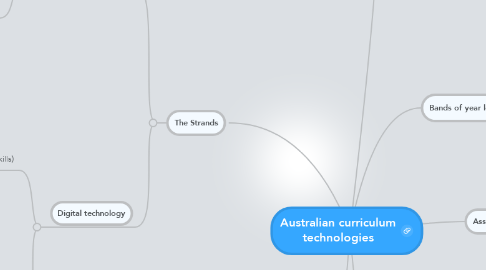
1. The Strands
1.1. Design and technology
1.1.1. Knowledge and understandings
1.1.1.1. Use develop, and impact of technologies in people's lives
1.1.1.2. Design concepts across a range of technological contexts
1.1.2. Process and production (skills)
1.1.2.1. Critiquing, exploring and investigating needs or opportunities
1.1.2.2. Generating, developing and evaluating designed solutions
1.1.2.3. Planning, producing (making) and evaluating designed solutions
1.2. Digital technology
1.2.1. Process and production (skills)
1.2.1.1. collecting, managing and interpreting data when creating information, and the nature and properties of data, how it is collected and interpreted
1.2.1.2. using a range of digital systems and their components and peripherals
1.2.1.3. defining problems and specifying and implementing their solutions
1.2.1.4. creating and communicating information, especially online, and interacting safely using appropriate technical and social protocols
1.2.2. Knowledge and understandings
1.2.2.1. The components of digital systems:software, hardware and networks
1.2.2.2. The use, development and impact of information systems in peoples lives
1.2.2.3. how data are represented and structured symbolically
